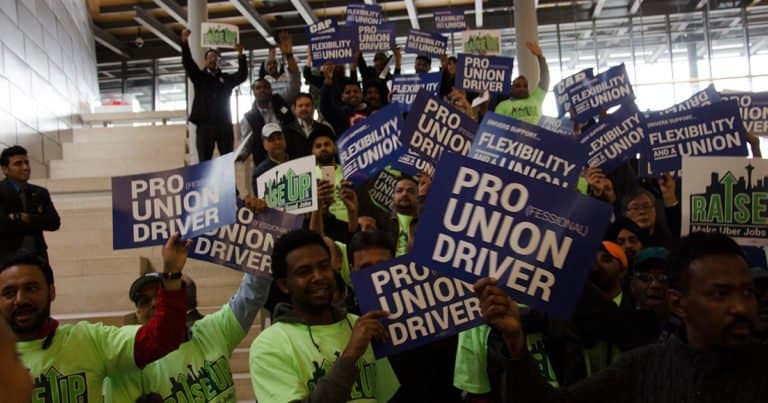Leora Smith is a student at Harvard Law School.
As of yesterday, the federal government will start requiring contractors to provide paid sick leave to their workers. Any company contracting with the federal government must give workers one day of sick leave for every 30 days worked, for up to seven days. In announcing the new rule, President Obama said, “When people don’t have paid sick days, they might have to choose between taking care of themselves and putting food on the table… [W]hen a child gets sick and has to stay home, parents may have no choice but to care for them and lose a day’s pay as a result. That’s simply not a tradeoff the wealthiest nation on Earth should be asking working parents to make.” Notably, the rule includes both physical and mental illness.
California also passed an noteworthy bill yesterday that will automatically enroll workers in a state-run retirement savings plan. The plan applies to workplaces with five or more employees and it is estimated that around seven million workers will have access to the program. Though workers can opt-out of the plan, the default will be for employers to automatically deduct 3% off each paycheque, to be put into a savings fund. Time reports that “half of all households age 55 and older have no retirement savings. Even those who have 401(k)s are failing to save enough for a comfortable retirement.” About 30 states have plans to set up automatic retirement plans and will likely be watching California as they implement this one over the next few years.
In an article titled “The Forgotten Providers”, The Atlantic takes a deep dive into the challenges facing home-care workers, addressing the legacies of racism and sexism that affect working conditions in this fast-growing sector. Home-care work is expected to create more jobs in the next decade than any other occupation, but protections in the industry are thin because domestic work is exempted from many of the provisions in the National Labor Relations Act, and the Fair Labor Standards Act. Today “over a quarter [of homecare workers are] living under the poverty line and more than half [are] reliant on public assistance.”
And The Marshall Project published a helpful primer on the ongoing prisoner strikes that started on September 9. Though they cite difficulties in obtaining up-to-date information, it is believed that over 24,000 inmates in 12 states refused to work on the first day of the strike. Last weekend, corrections officers in Alabama joined the action, refusing to work their 12-hour evening shift. Prisoners cite wide-ranging reasons for the strikes including lack of fair pay for their work.






Daily News & Commentary
Start your day with our roundup of the latest labor developments. See all
October 17
Third Circuit denies DOL's en banc rehearing request; Washington AG proposes legislation to protect immigrant workers; UAW files suit challenging government surveillance of non-citizen speech
October 16
NLRB seeks injunction of California’s law; Judge grants temporary restraining order stopping shutdown-related RIFs; and Governor Newsom vetoes an ILWU supported bill.
October 15
An interview with former NLRB chairman; Supreme Court denies cert in Southern California hotel case
October 14
Census Bureau layoffs, Amazon holiday hiring, and the final settlement in a meat producer wage-fixing lawsuit.
October 13
Texas hotel workers ratify a contract; Pope Leo visits labor leaders; Kaiser lays off over two hundred workers.
October 12
The Trump Administration fires thousands of federal workers; AFGE files a supplemental motion to pause the Administration’s mass firings; Democratic legislators harden their resolve during the government shutdown.